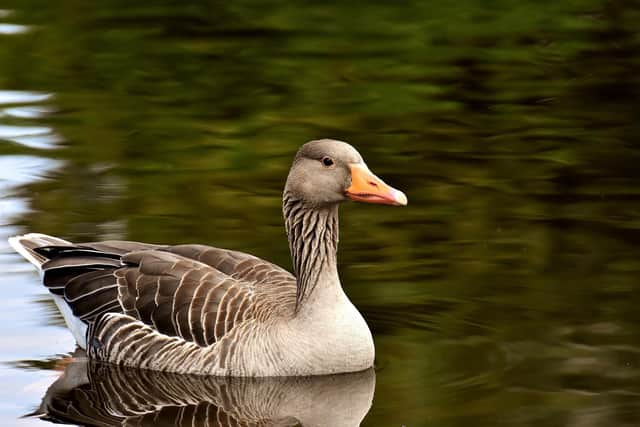Avian flu warning to public after dead birds found at Clipstone beauty spot
and live on Freeview channel 276
The public is advised not to touch or pick up any dead or sick birds that they find.
Avian Influenza is in no way connected to the Covid-19 pandemic, which is caused by the SARS-CoV-2 virus and is not carried in poultry.
Advertisement
Hide AdAdvertisement
Hide AdWild birds migrating to the UK from mainland Europe during the winter months can carry the disease and this can lead to cases in poultry and other captive birds, so it is vital to not allow wild birds to mix with chickens, ducks, geese or other birds.


Nottinghamshire County Council’s Trading Standards team is issuing advice and working with Newark and Sherwood District Council and other partner agencies to reduce the risk of the spread of the disease.
Since December 2021, it has been a legal requirement for all bird keepers across the UK to keep their birds indoors and to follow strict biosecurity measures in order to limit the spread of the disease.
These measures apply to all bird keepers, whether they own pet birds, a few chickens or a full commercial flock.
Advertisement
Hide AdAdvertisement
Hide AdThe introduction of housing measures that came into force last December means that, in addition to housing all poultry and captive birds, keepers must continue taking extra precautions to keep their flocks safe.


This includes regularly cleaning and disinfecting equipment, clothing and vehicles when entering or exiting sites and limiting access to non-essential workers or visitors.
These housing measures will be kept under regular review as part of the government’s work to protect flocks.
UK Health Security Agency (UKHSA) advises that although the risk to human health from the virus is very low, people can catch bird flu via direct contact with a live or dead bird carrying the virus, or via direct contact with bird faeces from a bird carrying the virus.
Advertisement
Hide AdAdvertisement
Hide AdTherefore, it is vital that anyone spotting any sick or dead birds does not touch them and that they contact the Department for Environment, Food and Rural Affairs (DEFRA).
It is important to stress however that humans cannot catch bird flu via airborne particles. Food standards bodies also advise that avian influenzas pose a very low food safety risk for UK consumers.
There is no impact on the consumption of properly cooked poultry products including eggs.
Councillor John Cottee, chairman of Nottinghamshire County Council’s Communities Committee, said: “The discovery of dead birds is always upsetting and the news that two have tested positive for avian flu will obviously be of concern to residents and visitors, however the risk of the disease transferring from birds to humans is considered to be very low.
Advertisement
Hide AdAdvertisement
Hide Ad“That said, it is important that people do not touch any sick or dead birds and I would also urge people not to feed any swans and geese, particularly around Vicar Water Country Park and Southwell, as feeding encourages them to congregate and that increases the risk of the disease spreading.
“As well as issuing an appeal for the public not to touch or move dead birds, I am also asking dog owners to keep their pets away from them.”
Anyone who finds dead wild waterfowl (swans, geese or ducks) or other dead wild birds, such as gulls or birds of prey should report them to the DEFRA helpline on 03459 33 55 77.